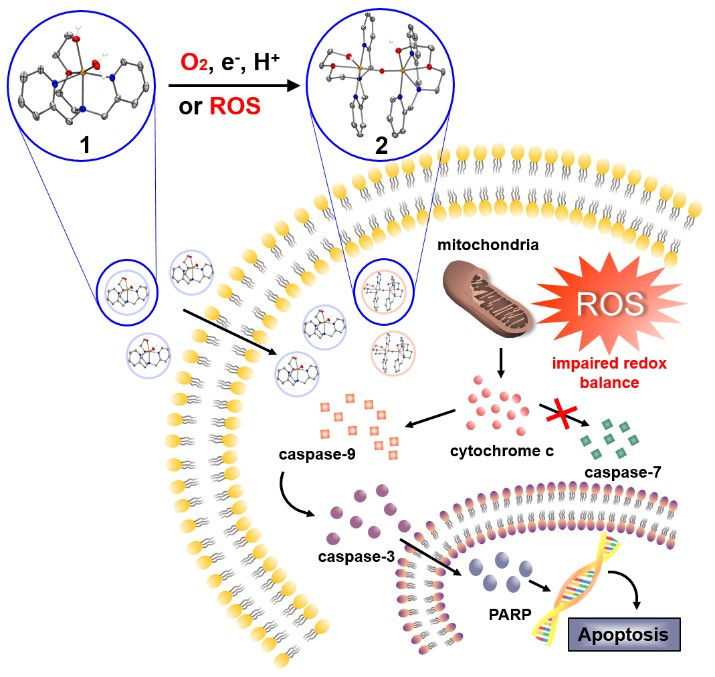Our research teams proposed a colorectal cancer-specific treatment using bioinorganic compounds
- Views 2242
- Writer 커뮤니케이션팀
- 보도일자 2021-12-31
The research team led by Professor Seung-woo Hong of the Department of Chemistry and the research team led by Professor Kyung-hyeon Ryu of the Division of Biological Sciences at Sookmyung Women’s University proposed a therapeutic agent that specifically responds to colorectal cancer using bioinorganic compounds.
This research was carried out with the support from the National Research Foundation of Korea for young research projects, and the research results were published online on December 11 in Chemical Science (IF = 9.825, Top 12.2% in Chemistry Multidisciplinary), a renowned international academic journal. This paper was co-lead authored by Yul Lee, a student with a master’s degree in the Department of Chemistry, and Chae-Woon Oh, a doctoral student in the Department of Biological Sciences. Jeonbuk National University’s Professor Woo-gyun Bae from the Medical School, Professor Kyung-hyeon Ryu from the Division of Biological Sciences, and Professor Seung-woo Hong of the Department of Chemistry participated as corresponding authors.
Cancer is the first cause of death in developing and developed countries, and cisplatin, one of the universally used anticancer drugs, has been used since 1978 as a platinum inorganic compound. Research on the development of anticancer drugs to replace cisplatin is ongoing worldwide because it causes various side effects such as diarrhea, vomiting, hair loss, and leukocyte reduction, and drug resistance.
This research team focused on the fact that the metal compound containing the biocompatible first cycle transition metal has an effect on regulating the concentration of active oxygen in the living body. It was discovered that the synthesized biomimetic iron compound is friendly to normal cells and can effectively target colorectal cancer cells.
In addition, the reaction mechanism and signaling system inducing apoptosis signal transduction was revealed and demonstrated at the in vitro level, and through in vivo experiments, it was confirmed that the size of colorectal cancer cells decreased in the preclinical stage, and related contents were applied for a patent.

Professor Hong Seung-woo of the research team who conducted this study said, "Currently, biocompatible and selective cancer treatment is being developed around the world, and it is meaningful to propose that bioinorganic compounds can be a new alternative.” and “This is a research led by Sookmyung Women's University, and the ultimate goal is to establish a library of biological cancer treatment agents through continuous chemistry-biological joint (converged) research in the future."


